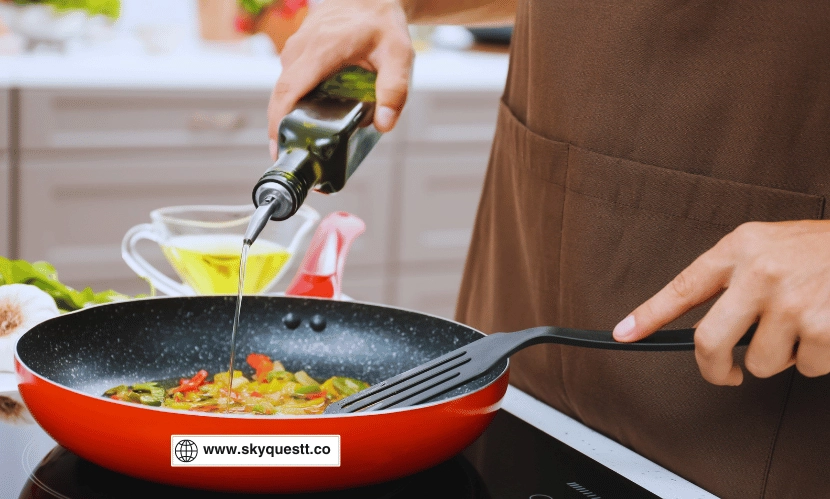
Used Cooking Oil (UCO) Trading: An Overview
Used Cooking Oil (UCO) is becoming an increasingly valuable asset in today’s global economy. As concerns about the environment grow and there is a push towards renewable energy sources, UCO is being leveraged extensively for producing biodiesel, significantly contributing to the circular economy. This content provides a comprehensive look at the trading of used cooking oil, examining its market dynamics, pricing, supply chain, and the various factors influencing its trading value.
Understanding Used Cooking Oil (UCO)
Used Cooking Oil is essentially the waste oil generated from cooking or frying food, commonly found in restaurants, food processing plants, and households. Instead of discarding this oil as waste, it can be collected, refined, and repurposed into biodiesel and other useful products. This transformation makes UCO a critical renewable energy source and a sustainable raw material for various industrial applications.
Market Dynamics and Current Trading Price of Used Cooking Oil
The price of UCO on the market is influenced by several factors, including its quality, geographic region, supply levels, and demand dynamics. Based on recent market observations:
- Pricing Range: UCO typically trades within a range of $500 to $800 per metric ton. Higher-quality UCO, characterized by lower Free Fatty Acid (FFA) content and minimal impurities, tends to fetch a higher price, while lower-quality oil is sold at the lower end of the scale.
- Regional Differences: There is a noticeable variation in UCO prices across different regions due to local market dynamics, regulatory environments, and logistics costs. For example, UCO prices in Europe are often higher due to strict renewable energy regulations and a high demand for waste-derived biodiesel.
- Influencing Factors: Additional factors that affect UCO prices include fluctuations in crude oil prices, the cost of vegetable oils like palm and soybean oil, governmental policies, and changes in biodiesel production capacity around the world.
Key Applications of Used Cooking Oil
UCO is a versatile substance with several important applications, such as:
- Biodiesel Production: One of the primary uses of UCO is in the creation of biodiesel, a renewable and cleaner-burning substitute for petroleum diesel. Biodiesel derived from UCO is considered a sustainable alternative as it repurposes waste materials instead of using virgin vegetable oils, significantly reducing carbon emissions.
- Renewable Energy Generation: Beyond biodiesel, UCO can also be employed in the production of electricity and heat. Certain power plants and industrial facilities use UCO as a fuel source, contributing to a more sustainable and circular economy.
- Industrial Uses: UCO serves as a raw material in manufacturing soaps, detergents, and other chemical products. It is also used as an ingredient in animal feed after appropriate treatment and refining to remove harmful elements.
- Lubricants and Additives: In some industries, UCO is used as a base for producing lubricants and other industrial additives, providing an alternative to more expensive raw materials.
Global Growth Trends in the Used Cooking Oil Market
The market for UCO has witnessed rapid expansion over the past decade, driven by various factors:
- Increased Demand for Biodiesel: The global demand for biodiesel, particularly in regions like Europe, North America, and Asia, has been a significant driver of UCO market growth. Governments worldwide are advocating for renewable energy sources, thereby boosting the biodiesel sector and the demand for UCO.
- Supportive Regulatory Frameworks: Policies like the EU’s Renewable Energy Directive (RED II) and the US Renewable Fuel Standard (RFS) mandate the use of renewable fuels, including waste-based biodiesel, further increasing the demand for UCO.
- Environmental Awareness: Growing concerns over environmental pollution and the need for sustainable practices have led to more widespread collection and recycling of UCO. Countries are increasingly focusing on reducing waste and promoting circular economy models, accelerating the growth of the UCO market.
- Expansion in Emerging Economies: Emerging markets, such as China, India, and Southeast Asian countries, are becoming active participants in the UCO market, serving both as suppliers and consumers.
Advantages and Benefits of Using Used Cooking Oil
Utilizing UCO offers multiple advantages, including:
- Environmental Sustainability: Recycling UCO significantly reduces the environmental impact associated with waste disposal. Instead of being dumped in landfills or water bodies, where it could cause pollution, UCO is converted into biodiesel, a more eco-friendly alternative.
- Lower Greenhouse Gas Emissions: Biodiesel produced from UCO has a much smaller carbon footprint compared to conventional diesel. Using waste oils instead of virgin vegetable oils also cuts down on the total emissions associated with biodiesel production.
- Cost-Effectiveness: UCO is generally more affordable than virgin oils, making it an economical raw material for biodiesel production, which helps lower the overall cost of renewable energy.
- Promotion of a Circular Economy: By repurposing waste products like UCO, we support the circular economy, where resources are reused and recycled to minimize waste and maximize value.
- Economic and Employment Benefits: The UCO industry helps create jobs in collection, processing, refining, and trading, contributing to local and national economies.
Challenges and Drawbacks in Trading Used Cooking Oil
Despite its advantages, there are several challenges and potential drawbacks to trading UCO:
- Quality Control Challenges: Ensuring consistent quality in UCO is difficult. Contaminated or lower-quality UCO can lead to inefficiencies in biodiesel production and may not meet the strict quality standards set by buyers.
- Supply Chain Issues: Collecting and transporting UCO involves logistical challenges, particularly in regions where sources are scattered, such as small restaurants and households. These challenges can increase operational costs and affect the profitability of UCO trading.
- Complex Regulatory Compliance: UCO trading is subject to numerous regulations across different countries, and adhering to these can be both complicated and costly. Additionally, changes in government policies, tariffs, or biofuel mandates can significantly impact the UCO market.
- Inconsistent Supply: The availability of UCO can be erratic due to seasonal fluctuations, variations in restaurant activity, or economic factors affecting the foodservice industry. This can lead to supply shortages and price volatility.
- Competition with Other Feedstocks: UCO faces competition from other feedstocks such as animal fats, soybean oil, and palm oil in biodiesel production. Price shifts in these alternative feedstocks can impact the demand for and pricing of UCO.
Conclusion
The trading of Used Cooking Oil (UCO) is an expanding segment in the global market, driven by the growing demand for biodiesel and sustainable energy solutions. With its environmental benefits, cost efficiency, and potential to support a circular economy, UCO is emerging as a valuable commodity. However, challenges such as maintaining quality control, navigating complex regulations, and managing supply chain logistics must be addressed to ensure the sustainable growth of the UCO market. As the world continues to transition towards more sustainable and environmentally friendly practices, the trading and utilization of UCO are set to play a vital role in the renewable energy sector.






